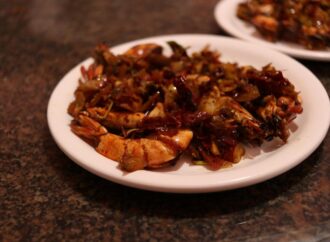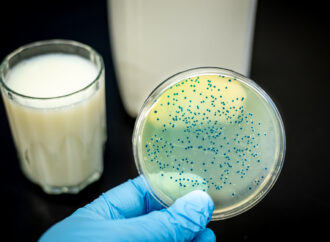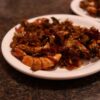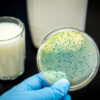Food safety is something we all care about, but there are a lot of myths out there that can lead to unsafe practices in the kitchen. Whether it’s about washing meat, using expiration dates, or storing food, many people unknowingly follow habits that could put their health at risk. In this article, we’ll clear up some of the most common myths about food safety and give you simple, practical tips to avoid making these mistakes. By understanding the facts and making a few changes, you can keep your meals safe and enjoy your food with peace of mind.
Washing Meat Makes It Safer

Many people believe washing meat before cooking it removes harmful bacteria. In reality, washing raw meat spreads bacteria around your kitchen. Water splashing off the meat contaminates countertops, utensils, and other foods. Instead of washing the meat, cook it at the proper temperature to kill bacteria. Skip the wash and go straight to cooking.
Expiration Dates Are Set in Stone
Many people assume that the date on the packaging is the absolute cut-off for when food is no longer safe to eat. While expiration dates are helpful, they’re not always set in stone. The “sell by” or “use by” dates often suggest peak quality, not safety. Foods like canned goods and dry items can remain safe well past their dates if stored properly. Always check for signs of spoilage, such as odd smells, changes in texture, or mold, before discarding food.
Food Can Be Safely Left Out for Hours
Many of us have left food out on the counter for hours, thinking it’s fine as long as it’s not too warm. Unfortunately, bacteria thrive in the “danger zone” between 40°F and 140°F. When food stays in this temperature range for more than two hours, it becomes a breeding ground for bacteria. To avoid this, refrigerate leftovers as soon as possible and avoid letting food sit out for too long.
All Raw Foods Are Unsafe
Many people believe that raw foods, like salads or sushi, are automatically dangerous. While it’s true that raw food can carry risks, it’s not always unsafe. Fresh fruits and vegetables, for example, are typically safe to eat raw as long as you wash them thoroughly. However, when it comes to raw meat or eggs, always take extra care. Look for products labeled as “pasteurized” or “safe for raw consumption,” and avoid consuming raw meats unless they are from a trusted source.
A Little Bit of Food Poisoning Isn’t That Bad
Another misconception is that food poisoning is just a minor inconvenience. However, foodborne illnesses can be much more serious, especially for young children, pregnant women, older adults, and those with weakened immune systems. The symptoms can range from stomach cramps and diarrhea to more severe health issues like kidney failure or even death. Never brush off foodborne illness symptoms, and always take steps to prevent it by practicing proper food safety.
You Can Reheat Leftovers Multiple Times
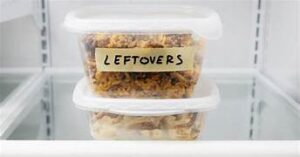
We’ve all reheated leftovers, but reheating food multiple times isn’t a safe practice. Every time food cools down and is reheated, it spends more time in the “danger zone” for bacteria to grow. To keep your food safe, try to only reheat leftovers once and avoid refreezing food that’s been previously thawed.
You Can Trust Your Nose to Detect Spoiled Food
We’ve all been in a situation where we’ve sniffed food to check if it’s still okay to eat. But relying on your nose alone isn’t always accurate. Spoiled food may not always smell bad, especially when it comes to dairy, meats, and seafood. It’s better to trust your eyes, nose, and common sense. Check the color, texture, and appearance of the food and, if in doubt, toss it out.
Freezing Food Kills All Bacteria
Freezing food is a great way to preserve it, but it doesn’t kill all bacteria or viruses. Freezing simply halts the growth of bacteria but doesn’t eliminate them entirely. If food was contaminated before freezing, it can still cause illness once thawed. Always make sure to handle food safely before freezing, and when you thaw, do so in the fridge or microwave to avoid bacteria growth.
Cross-Contamination Only Happens When You Don’t Wash Your Hands

While washing your hands is important to prevent cross-contamination, it’s not the only way contamination can happen. Cutting boards, knives, and other utensils can easily transfer harmful bacteria from raw meats to ready-to-eat foods like salads or bread. To prevent cross-contamination, use separate cutting boards for meats and vegetables, and always wash utensils and surfaces between uses.
If It Looks Fine, It’s Fine
It’s easy to assume that food that looks fine is safe to eat. However, bacteria can grow on food even if it doesn’t show visible signs of spoilage. Some bacteria, like E. coli and Salmonella, can contaminate food without changing its appearance. Always pay attention to expiration dates, storage guidelines, and proper handling to ensure the food you’re eating is safe.
Conclusion
Food safety isn’t as complicated as it might seem, but there are a lot of myths that can lead to unsafe practices. By following these simple tips and staying informed about food safety, you can reduce your risk of foodborne illness and protect your health. Remember to wash your hands, store food properly, and cook food at the right temperatures to keep your meals safe and enjoyable.
 Food Manifest
Food Manifest 


